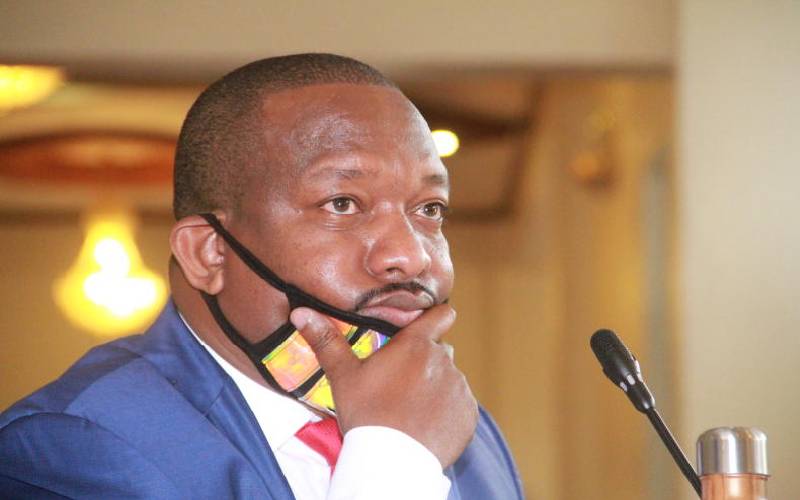
Recent news on the threats by Nairobi County MCAs to impeach Nairobi Governor Mike Sonko (pictured) based on his tussle with the Nairobi Metropolitan Services (NMS) have highlighted the challenges facing governors in discharging their mandate.
While the legality of the NMS-Nairobi County deal is still up for debate, Governor Sonko joins a growing list of governors living in fear of facing the axe by the county assembly.
Others on the list include Ferdinand Waititu (successfully impeached), Charity Ngilu (Kitui), Anne Waiguru (Kirinyaga), Wycliffe Wangamati (Bungoma), Salim Mvurya (Kwale) and Patrick Khaemba (Trans Nzoia).
Governor Waiguru, however, survived the axe after Senate overturned her impeachment by the Kirinyaga MCAs.
Ngilu’s motion is still ongoing after MCAs had ‘mysteriously’ failed to attend the impeachment proceedings.
Although the Constitution gives MCAs the powers to impeach the governor, the same power is to be exercised on well laid out grounds in Article 181(1) and Section 33 of the County Governments Act.
Article 181(1) lists grounds such as gross violation of the constitution, mental incapacity, commiting a crime and abuse of office.
The County Governments Act, however, gives the Senate oversight role in impeachment motions of governors.
The oversight role of the Senate can be a reprieve for most governors who may find solace that perhaps their plight will be heard at the Senate.
The rise of MCAs threatening impeachment of governors is a worrying trend. The successful impeachment of Waititu must have triggered the current appetite of MCAs to impeach governors.
The Constitution has set a higher standard for the removal of a governor and the same should not be diluted by Members of County Assembly. The ward representtaives are well within their rights and duties as granted by the constitution, however, they should not exercise this right to prevent governors from discharging their constitutional mandate.
The high standards set by the constitution should be maintained at all times before resorting to tabling impeachment motions.
For example, in Sonko’s impeachment wrangles, comments by some of the MCAs sum up the emotive and political issues surrounding the impeachment process.
Courts are generally reluctant to interfere with impeachment motions. Indeed, the High Court’s ruling in Anne Mumbi Waiguru v County Assembly of Kirinyaga [2020] eKLR showed the general view held by the courts in upholding the doctrine of separation of powers; and the exercise of restraint in exercising conservatory powers over constitutional organs.
The plight of the governors is, therefore, left in the hands of the Senate which acts as the appellate body in the impeachment process.
The good news is that there currently exists the Impeachment Bill 2018. If passed, the bill will allow for critical review of impeachment motions against governors before being tabled at the County Assembly by the County Assembly speaker. Furthermore, the Bill provides for an elaborate procedure which includes both public participation in the process, adequate time for the governors to respond to the impeachment grounds tabled against them, as well as be accorded a fair hearing at the County Assembly.
-The writer is a postgraduate diploma student at the Kenya School of Law
Bold Reporting Takes Time, Courage and Investment. Stand With Us.
- Unlimited access to all premium content
- Uninterrupted ad-free browsing experience
- Mobile-optimized reading experience
- Weekly Newsletters
- MPesa, Airtel Money and Cards accepted
